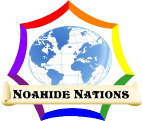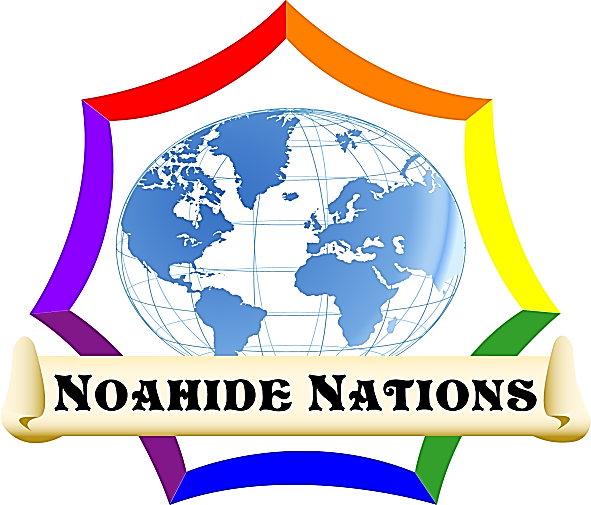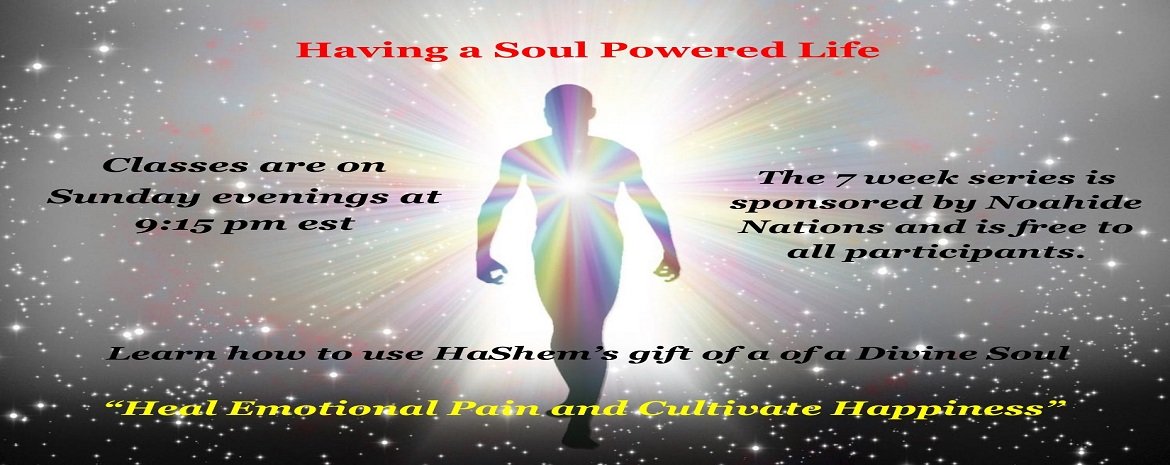And He Called
- Category: General
- Hits: 3921
Article Index
It was G-d’s will that he apportion one family among all the families of the earth to Himself.
G-d designedly searched out the families of the earth for this people of purpose. The thread of G-d’s plan was traced out to Abraham. Abraham’s distinction was that he would, “command his children and his household after him, that they may keep the way of the LORD.”[1] Isaac was named Abraham‘s heir rather than Ishmael; on account of G-d’s will.[2] Jacob’s superior moral quality over the wicked Esau qualified his inheritance of the promise. The promise was established with Jacob and his sons. Jacob‘s death marked the end of the divine promise passing from individual to individual. Now, G-d’s promises and blessings became the shared possession of a nation.
The redemption from Egypt was the most anticipated promise yet to be fulfilled.[3] The national relationship with the tribes was an unparalleled event in history. Moses, Hashem’s emissary, was equally unparalleled.
With the selection of G-d’s messiah for his people selected and prepared G-d makes himself known. G-d discloses to Moses that Israel has not known Him as Adonai. Commentators and Critics of the Torah have engaged themselves in mortal combat concerning this verse. Hertz[4] elucidates the true meaning of this verse. The name Adonai was not something new. Moses’ mother’s name Jochaved, which “…means Adonai is my glory,” predates this revelation.[5] According to Hertz, the name signifies G-d’s attribute[6] of Faithfulness. The promises of G-d were professed true by the patriarchs through faith.[7] Only immediate promises such as those of protection were confirmed by experience. Not until the death of the patriarchs did Israel become a mighty nation. The new knowledge that Israel possessed concerning HASHEM was that his promises were in fact reliable. This knowledge corresponds to the meaning of Adonai. The nature of G-d, as faithful, is a comfort in times of trouble; especially now that it was not just a matter of belief but a matter of fact. Other promises made by G-d although not yet fulfilled, with certainty will be. Hertz believed that this commonsense interpretation preserved the oneness of the Torah and protected it from those in the Higher Criticism camps.
The wheel of time had finally turned to the day of fulfillment. The prophetic naming of Leah’s first three children foresaw it. The Torah proceeds to list the heads of each of the tribes of Israel but only lists the first three sons of Leah.[8] The strangeness of this compels us to investigate. Leah was the least favored between the two wives of Jacob. G-d opened Leah‘s womb in virtue of her righteousness and plight. Leah‘s first three sons are named according to her hope that her husband would now love her.[9]The first born, Reuben, is named because “…the LORD hath looked upon my affliction; for now my husband will love me.”[10] Simeon is named because Leah says, “…The LORD hath heard that I am hated…”[11] and Levi, “…Now this time will my husband be joined unto me…”[12] Keeping these interpretations in mind we can begin to decipher the mysterious list in Exodus. We are blind sided by the answer to our riddle. The names signify Israel at the time of the Exodus! G-d tells Moses that, “…I have surely seen the affliction of My people that are in Egypt.”[13] The Egyptians hate of the Hebrews is established when all the male children are ordered killed[14] and the Hebrews are put to hard bondage.[15] Levi’s name foretells the coming events of the Sinai experience when, “…I will take you to Me for a people, and I will be to you a God…”[16] The nation is afflicted, hated, and now finally joined to G-d.
Many are inspired that the faith of the Hebrews lasted through four hundred years of harsh bondage. It is a mistake to suppose that the Children of Israel were in captivity for four hundred[17] much less four hundred and thirty years,[18] Between the end of Genesis and the beginning of Exodus it becomes difficult to keep up with an exact chronology based solely on the text. What we do know from Scripture makes it impossible that the Children of Israel were in Egypt for four hundred years. A simple mathematical examination of the text reveals this fact. According to Genesis 46:11 Kohath was one of those seventy souls that accompanied Jacob into Israel. We know that he was born and entered the landof Egypt at the very beginning of the Exile. We also know from Exodus 6:16-27 that Kohath lived to be one hundred and thirty-three years old. Kohath’s son, Amram, lived to be one hundred and thirty-seven years old. Moses, the son of Amram, was eighty at the time of the Exodus.[19] Assuming that Kohath was one when Jacob entered Egypt and that he did not have Amram until the last year of his life, at 133, and that Amram in turn did not have Moses until he was 137 we only have 270 add to this Moses’ age at the Exodus, 80, and we can reach no higher than 350. This by no means presents a challenge to the authenticity of the Torah. It merely presents a problem to those that misunderstand the Torah and reject Jewish oral tradition. Understanding what the Torah really means in light of Israel’s tradition forces us to reexamine our previously conceived notions of the Exodus account.[20]
The Torah announces that G-d has set Moses, “…in God’s stead to Pharaoh; and Aaron thy brother shall be thy prophet…” This verse is very troublesome. Does the Torah mean that Moses is a god to Pharaoh? Understanding the nature of prophecy clarifies the meaning of this verse. Moses is being likened to a messenger or angel that appears to a prophet and commands him what to say. In the Hebrew Scriptures we know that Elohim is used to refer to Angels.[21] This verse expounds both Moses’ uniqueness as a prophet and Aaron’s role in the Exodus story (a role usually overlooked). Aaron is Moses’ spokesman to both Pharaoh and all of Israel.[22] If Aaron is acting as Moses’ prophet then we must assume that Moses is fulfilling the role of angel for G-d to Aaron. This would prevent us from concluding that Moses was literally “…in [G-d‘s] stead.”
According to the Rambam there are three qualifications that one must possess to be a prophet of G-d.[23] A prophet must be a scholar[24], have a perfected moral character, and finally, their imaginative faculty must be of the highest state of perfection possible.[25] These qualities must be possessed by any would be prophet. However, without the divine will that a prophet receive prophecy the prophet will never be a prophet in reality only potentially.
All of the prophets before and after Moses communicated through an angel and not directly with HASHEM. Moses was the only exception. G-d specifically tells us that He speaks with all prophets in either a vision or a dream.[26] But with Moses he speaks “mouth to mouth.” That is why the Rambam says that Moses is a prophet only homonymous with other men.[27] Anytime a prophet says that he sees G-d or is speaking with G-d we conclude that it is through an angel in a dream or vision.[28]
Moses differs from the prophets in several ways. Moses is superior to all prophets before and after him.[29] G-d spoke with Moses face to face not through an angel in visions and dreams.[30] Moses performed miracles before the entire nation of Israel,[31] as well as the enemies of Israel--Pharaoh and the Egyptians.[32]
It was through a unique experience, the miracles of the Exodus, that a unique people, Israel, was lead by a unique leader, Moses, to receive a unique law, Torah, from a unique G-d, HASHEM. This unique quality of the Exodus experience removes it from all comparison and attack. No other revelation between G-d and a people match the Exodus. The truth of the Exodus is so clear from the evidence of its uniqueness that no critic can successfully overcome it. “For what great nation is there, that hath God so nigh unto them, as the LORD our God is whensoever we call upon Him? And what great nation is there, that hath statutes and ordinances so righteous as all this law…” (Deut. 4:7-8)?
Understanding Moses increases the awe of the entire Sinai experience. The giving of the Torah, the secret treasure of G-d, could not have occurred under any other circumstance. The holiness of the Torah demanded that the entire world look on gasping with anticipation as the wonders of HASHEM unfolded.
G-d commands Moses to display his wonders before pharaoh; however, these wonders will have little affect on him since G-d says he will harden his heart.[33] This verse is one of the most challenging verses in the Torah. It is here where Jews and Christians alike are forced to ask: “Do we or do we not have freewill?” The response from the Jewish people is that we do have free will—we must. The Ramchal[34] explains that freewill is necessary to fulfill the divine purpose of creation--G-d’s fellowship.[35] Ramchal points out that not all of man’s deeds are a result of his freewill. Some of these deeds are determined by heaven. G-d can and will influence man if His servants are justly deserving it,[36] or to deal with those that are so evil that they have lost their freewill.[37] To some the idea that man possesses in any degree such a thing as freewill directly challenges G-d’s sovereignty. This is a false concern. It is from G-d that we receive whatever sovereignty that we possesses as human beings. It is like a king imbuing a governor the power to rule his province. No one would believe that this freedom challenges the king’s sovereignty. The king‘s sovereignty is only threatened when the governor becomes the King‘s equal. However, since it is clear that humans are not the equal of G-d, not even approaching the perfection of angels, there is no threat.
G-d gives Moses three signs to prove to Israel that G-d has sent him. He turns his rod into a snake, turns his hand from normal to leprous to normal, and takes water from the river (Nile) and turns it to blood as he pours it onto the ground. Oddly, Moses performs two of these feats for pharaoh, turning his rod into a serpent and turning the water of Egypt into blood. We do not see him performing the sign of leprosy.[38] The first and third signs are done for pharaoh because these are the signs of Egyptian power. The Nile was the life of Egypt. It was from the Nile that the Egyptian mythos was inspired. The incidence of the leprosy was probably not shown to Pharaoh because its impact was not as significant as the first and third sign. The second sign,[39] if only shown to Israel, may have represented to them the fulfillment of G-d’s promise. Israel went into Egypt a small but healthy tribe, suffered affliction and became a curse amongst the Egyptians through their suffering, and now Israel will leave a mighty nation.
It is through the plagues that Egyptian power will be destroyed and the unity and limitless power of HASHEM proclaimed. These wonders are G-d’s means to bring Israel out of Egypt to establish them as a holy nation. A nation whose purpose was destined by the divine will from the very beginning.


 French (FR)
French (FR)  English (UK)
English (UK) 




